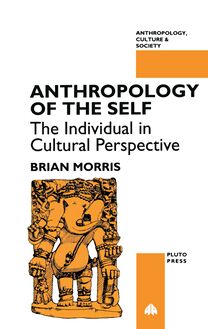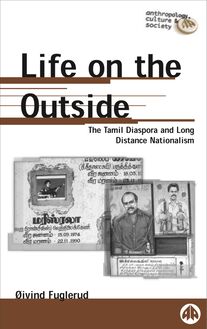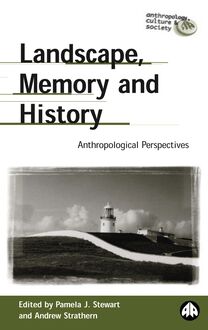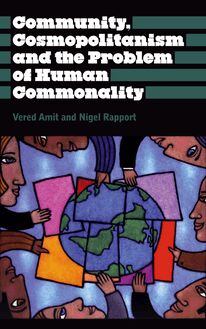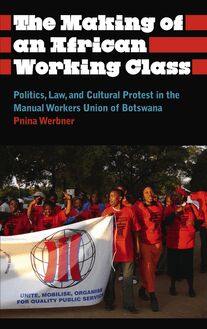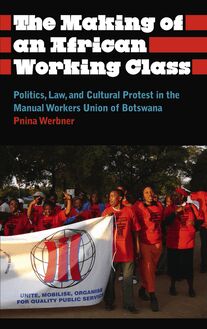-
 Univers
Univers
-
 Ebooks
Ebooks
-
 Livres audio
Livres audio
-
 Presse
Presse
-
 Podcasts
Podcasts
-
 BD
BD
-
 Documents
Documents
-
- Cours
- Révisions
- Ressources pédagogiques
- Sciences de l’éducation
- Manuels scolaires
- Langues
- Travaux de classe
- Annales de BEP
- Etudes supérieures
- Maternelle et primaire
- Fiches de lecture
- Orientation scolaire
- Méthodologie
- Corrigés de devoir
- Annales d’examens et concours
- Annales du bac
- Annales du brevet
- Rapports de stage
La lecture à portée de main
Vous pourrez modifier la taille du texte de cet ouvrage
Découvre YouScribe en t'inscrivant gratuitement
Je m'inscrisDécouvre YouScribe en t'inscrivant gratuitement
Je m'inscrisEn savoir plus
Vous pourrez modifier la taille du texte de cet ouvrage
En savoir plus

Description
Drawing on five years of research in and around India's Special Economic Zones (SEZs), the book follows the stories of regional politicians, corporate executives, rural farmers, industrial workers and social activists to show how the pursuit of growth, profit and development shapes the politics of industrialisation and liberalisation.
This book offers a timely reminder that the global economy is shaped by sentiment as much as reason and that un-realised expectations are the grounds on which new hopes for the future are sown.
List of Maps and Figures
Series Preface
Acknowledgements
Glossary and Abbreviations
Note on Language
1. The Economy of Anticipation
2. The Vision of Growth
3. The Land of Speculation
4. The Factory of the Future
5. The Labour of Aspiration
6. The Struggles for Tomorrow
7. Anticipation, Capitalism, Anthropology
Notes
Bibliography
Index
Sujets
Informations
| Publié par | Pluto Press |
| Date de parution | 20 avril 2014 |
| Nombre de lectures | 0 |
| EAN13 | 9781783710393 |
| Langue | English |
Informations légales : prix de location à la page 0,1850€. Cette information est donnée uniquement à titre indicatif conformément à la législation en vigueur.
Extrait
Dream Zones
Anthropology, Culture and Society
Series Editors:
Professor Vered Amit, Concordia University
and
Professor Christina Garsten, Stockholm University
Recent titles:
Claiming Individuality:
The Cultural Politics of Distinction
E DITED BY V ERED A MIT AND N OEL D YCK
Community, Cosmopolitanism and the Problem of Human Commonality
V ERED A MIT AND N IGEL R APPORT
Home Spaces, Street Styles:
Contesting Power and Identity in a South African City
L ESLIE J. B ANK
In Foreign Fields:
The Politics and Experiences of Transnational Sport Migration
T HOMAS F. C ARTER
A World of Insecurity:
Anthropological Perspectives on Human Security
E DITED BY T HOMAS E RIKSEN , E LLEN B AL AND O SCAR S ALEMINK
A History of Anthropology Second Edition
T HOMAS H YLLAND E RIKSEN AND F INN S IVERT N IELSEN
Ethnicity and Nationalism:
Anthropological Perspectives Third Edition
T HOMAS H YLLAND E RIKSEN
Small Places, Large Issues:
An Introduction to Social and Cultural Anthropology Third Edition
T HOMAS H YLLAND E RIKSEN
What Is Anthropology?
T HOMAS H YLLAND E RIKSEN
Discordant Development:
Global Capitalism and the Struggle for Connection in Bangladesh
K ATY G ARDNER
Organisational Anthropology:
Doing Ethnography in and Among Complex Organisations
E DITED BY C HRISTINA G ARSTEN AND A NETTE N YQVIST
Border Watch:
Cultures of Immigration, Detention and Control
A LEXANDRA H ALL
Corruption:
Anthropological Perspectives
E DITED BY D IETER H ALLER AND C RIS S HORE
Anthropology’s World:
Life in a Twenty-First Century Discipline
U LF H ANNERZ
Humans and Other Animals Cross-cultural Perspectives on Human–Animal Interactions
S AMANTHA H URN
Cultures of Fear:
A Critical Reader
E DITED BY U LI L INKE AND D ANIELLE T AANA S MITH
The Will of the Many:
How the Alterglobalisation Movement is Changing the Face of Democracy
M ARIANNE M AECKELBERGH
Cultivating Development:
An Ethnography of Aid Policy and Practice
D AVID M OSSE
The Gloss of Harmony:
The Politics of Policy Making in Multilateral Organisations
E DITED BY B IRGIT M ÜLLER
Contesting Publics Feminism, Activism, Ethnography
L YNNE P HILLIPS AND S ALLY C OLE
Food For Change The Politics and Values of Social Movements
J EFF P RATT AND P ETER L UETCHFORD
Race and Ethnicity in Latin America Second Edition
P ETER W ADE
Race and Sex in Latin America
P ETER W ADE
The Capability of Places:
Methods for Modelling Community Response to Intrusion and Change
S ANDRA W ALLMAN
Anthropology at the Dawn of the Cold War:
The Influence of Foundations, McCarthyism and the CIA
E DITED BY D USTIN M. W AX
Dream Zones
Anticipating Capitalism and Development in India
Jamie Cross
First published 2014 by Pluto Press
345 Archway Road, London N6 5AA
www.plutobooks.com
Distributed in the United States of America exclusively by
Palgrave Macmillan, a division of St. Martin’s Press LLC,
175 Fifth Avenue, New York, NY 10010
Copyright © Jamie Cross 2014
The right of Jamie Cross to be identified as the author of this work has been asserted by him in accordance with the Copyright, Designs and Patents Act 1988.
British Library Cataloguing in Publication Data
A catalogue record for this book is available from the British Library
ISBN 978 0 7453 3373 1 Hardback
ISBN 978 0 7453 3372 4 Paperback
ISBN 978 1 7837 1038 6 PDF eBook
ISBN 978 1 7837 1040 9 Kindle eBook
ISBN 978 1 7837 1039 3 EPUB eBook
Library of Congress Cataloging in Publication Data applied for
This book is printed on paper suitable for recycling and made from fully managed and sustained forest sources. Logging, pulping and manufacturing processes are expected to conform to the environmental standards of the country of origin.
10 9 8 7 6 5 4 3 2 1
Typeset from disk by Stanford DTP Services, Northampton, England Text design by Melanie Patrick
Simultaneously printed digitally by CPI Antony Rowe, Chippenham, UK and Edwards Bros in the United States of America
Contents
List of Maps and Figures
Series Preface
Acknowledgements
Glossary and Abbreviations
Note on Language
1 The Economy of Anticipation
2 The Vision of Growth
3 The Land of Speculation
4 The Factory of the Future
5 The Labour of Aspiration
6 The Struggles for Tomorrow
7 Anticipation, Capitalism, Anthropology
Notes
Bibliography
Index
Maps and Figures
Maps
1 The seven economic zones created by the government of India between 1965 and 1991
2 Total special economic zones granted planning approval (mid 2013)
Figures
1 Industrial Visakhapatnam, with the city’s steel plant on the horizon
2 Gateway to the Visakha steel plant
3 Gateway to the Visakhapatnam special economic zone
4 Old fields, new road: inside the Andhra Pradesh special economic zone
5 Resettlement colony: Main Street
6 The future is here
7 ‘Do not bite the hand that feeds you’
8 Kondal Rao with single spindle machine (2005)
9 Diamond boys at the end of another a shift (2005)
10 Suresh with phone and friend
11 Panel hearing a deposition, People’s Audit of SEZs (2009)
Series Preface
Anthropology is a discipline based upon in-depth ethnographic works that deal with wider theoretical issues in the context of particular, local conditions – to paraphrase an important volume from the series: large issues explored in small places. This series has a particular mission: to publish work that moves away from an old-style descriptive ethnography that is strongly area-studies oriented, and offers genuine theoretical arguments that are of interest to a much wider readership, but which are nevertheless located and grounded in solid ethnographic research. If anthropology is to argue itself a place in the contemporary intellectual world, then it must surely be through such research.
We start from the question: ‘What can this ethnographic material tell us about the bigger theoretical issues that concern the social sciences?’ rather than ‘What can these theoretical ideas tell us about the ethnographic context?’ Put this way round, such work becomes about large issues, set in a (relatively) small place, rather than detailed description of a small place for its own sake. As Clifford Geertz once said, ‘Anthropologists don’t study villages; they study in villages.’
By place, we mean not only geographical locale, but also other types of ‘place’ – within political, economic, religious or other social systems. We therefore publish work based on ethnography within political and religious movements, occupational or class groups, among youth, development agencies, and nationalist movements; but also work that is more thematically based – on kinship, landscape, the state, violence, corruption, the self. The series publishes four kinds of volume: ethnographic monographs; comparative texts; edited collections; and shorter, polemical essays.
We publish work from all traditions of anthropology, and all parts of the world, which combines theoretical debate with empirical evidence to demonstrate anthropology’s unique position in contemporary scholarship and the contemporary world.
Professor Vered Amit
Professor Christina Garsten
Acknowledgements
This book has been driven by a commitment to what I understand as public anthropology, a commitment fostered by a number of people and institutions but anchored in my experience as a postgraduate student at the University of Sussex. In finishing this book I feel a considerable debt of gratitude to those who once taught me and have supported me since, in particular to James Fairhead, Jon Mitchell, Geert de Neve, Filippo Osella, Jeffrey Pratt and Jock Stirrat.
Of course the material in this book carries the legacy of conversations with many people, including those who have read and commented on the material here in its various early forms. I would particularly like to thank Jonathan Parry, whose methodological commitment to empirical research, to questions of work, labour and industry in India, and to ethnographic writing as a genre has been particularly influential. In addition I would like to thank Sharad Chari, Laura Bear, Mukalika Banerjee, Akhil Gupta, Asseem Srivastava, Amita Bhaviskar, A.R. Vasavi, Alpa Shah, M. Vijayabaskar, S. Seethalakshmi, Madhumita Dutta, Patrick Osscarson, Michael Levien, Anant Maringanti, M. Vijayabaskar, Rebecca Prentice and Dinah Rajak, Lotte Hoek, Ward Berenschot and Malini Sur.
This book would not have been possible without the long-term support of many people in Visakhapatnam. I would like to thank, in particular, G. Jai Kisan, K.E. Raj Pramukh and P.D.S. Pal Kumar in the Department of Anthropology, and M. Nalini and Meena Rao in the Department of Politics and Public Administration, Andhra University. My very special thanks to Indira Gummiluri, my guide to Telugu language and literature, and Ram Babu for their hospitality over several years. Thanks to Suneetha and Mani – my long lost comrades – and to Chakri for his research assistance. Thanks also to J.V. Ratnam, E.A.S. Sharma, V.S. Krishna and Radha Krishna, whose activism animates the city in diverse ways.
Most of all I would like to thank those people who I first met on the floor of the Worldwide Diamonds factory in 2005 and whose various commitments to the future shaped the perspective from which this book is written. The book is dedicated to you: Chandrakala (Chinni), Geetha, Rama Lakhsmi, Lakshmi, Prakash, Patnaik, Laxman Rao, Kondal Rao, Appala Raju, Suresh, Srinivas, Bhaskar Rao and Nageswar Rao. I would also like to thank those civil servants and government officials whose support facilitated my research in north coastal Andhra Pradesh but who have chosen to remain anonymous.
In writing this book I have had the good fortune to be hosted at several institutions. At the National Institute of Advanced Studies in Bangalore I would like to thank Carol Upadhya; at the University of Amsterdam I would like to thank Mario Rutten and Jan Brema
-
 Univers
Univers
-
 Ebooks
Ebooks
-
 Livres audio
Livres audio
-
 Presse
Presse
-
 Podcasts
Podcasts
-
 BD
BD
-
 Documents
Documents
-
Jeunesse
-
Littérature
-
Ressources professionnelles
-
Santé et bien-être
-
Savoirs
-
Education
-
Loisirs et hobbies
-
Art, musique et cinéma
-
Actualité et débat de société
-
Jeunesse
-
Littérature
-
Ressources professionnelles
-
Santé et bien-être
-
Savoirs
-
Education
-
Loisirs et hobbies
-
Art, musique et cinéma
-
Actualité et débat de société
-
Actualités
-
Lifestyle
-
Presse jeunesse
-
Presse professionnelle
-
Pratique
-
Presse sportive
-
Presse internationale
-
Culture & Médias
-
Action et Aventures
-
Science-fiction et Fantasy
-
Société
-
Jeunesse
-
Littérature
-
Ressources professionnelles
-
Santé et bien-être
-
Savoirs
-
Education
-
Loisirs et hobbies
-
Art, musique et cinéma
-
Actualité et débat de société
- Cours
- Révisions
- Ressources pédagogiques
- Sciences de l’éducation
- Manuels scolaires
- Langues
- Travaux de classe
- Annales de BEP
- Etudes supérieures
- Maternelle et primaire
- Fiches de lecture
- Orientation scolaire
- Méthodologie
- Corrigés de devoir
- Annales d’examens et concours
- Annales du bac
- Annales du brevet
- Rapports de stage
